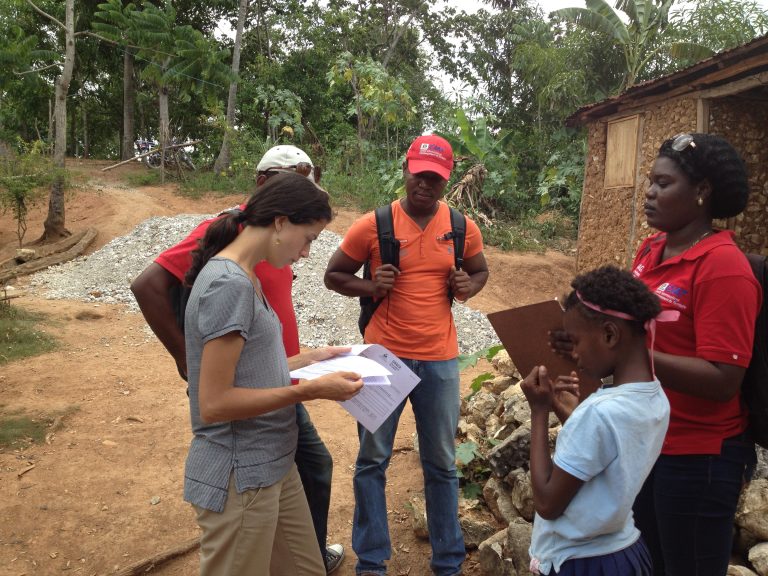Evaluating the Impact of Haiti's Rural Land Tenure Security Project
(BY GABRIELA VAZ RODRIGUES AND KEVIN BARTHEL)
and the Land Alliance are pleased to have been selected by the Haitian Inter-ministerial Committee of Land Use Planning (CIAT) to complete an evaluation of the economic impacts of the Government’s Land Tenure Security Project in Rural Areas (PSFMR). The PSFMR, which is financed by a US$27 million grant from the Inter-American Development Bank aims to improve tenure security, natural resource management and agricultural productivity in seven communes in the northern and southern regions of the country by clarifying land rights and strengthening key institutions responsible for land administration.
As transaction costs for formal transfer or sale of land represent between 25-45% of the sales value of the land and the process takes an average of 400 days to complete, most rural land owners in Haiti prefer to enter into informal agreements rather than obtaining formal title to land. As a result, informal, undocumented or not properly registered land rights are the norm and estimates show that 60% of all rural parcels have no formal property title. This informality results in inefficient use of land resources, lack of investment in agriculture productivity and disputes over ownership. Land disputes in particular are considered to be a major obstacle for in-farm investments and sustainable natural resources management. Informality is also a major impediment for territorial development and the management of State Lands.
The PSFMR was designed to begin to address these issues, in particular to test whether the clarification of tenure, stopping short of formal land titling or legalization of rights, along with the strengthening of government land institutions can sufficiently increase tenure security and in-turn encourage land owners to invest in increasing agricultural productivity, to improve management of land and natural resources and to reduce disputes at the parcel level.
The PSFMR is comprised of two major components: Component 1 supports the clarification of tenure status of all parcels in the selected communes by completing an accurate georeferenced survey of each parcel of land, a legal analysis of existing land titles to identify land rights and owners of the parcel, and the inclusion of this information in a land tenure database (Plan Foncier de Base). Component 2 supports the modernization of Haiti’s geodetic network, the design and implementation of the Plan Foncier de Base as well as the strengthening of the main actors of the land administration system through institutional analysis and provision of training, equipment and information management systems.
As a pilot project the PSFMR was designed with an Economic Impact Evaluation (EIE) at its very core to assess the impact of its particular approach on land tenure security, environmental management and agricultural productivity and to determine the potential and benefit from scaling. NORC and Land Alliance began the EIE work in May and are currently designing the methodology and including collecting and analyzing data with the support of their Haitian partner DAGMAR . The EIE is expected to analyze data from five communes included in the PSFMR including approximately 1300 households and will conduct two phases of data collection; a baseline and an end line. As designed the evaluating will be both a quantitative and qualitative evaluation and will involve not only economists completing econometric analysis, but also land administration, land tenure and social experts with experience in Haiti in order to fully take into account the complex institutional, legal and land tenure relationships found in rural Haiti.

